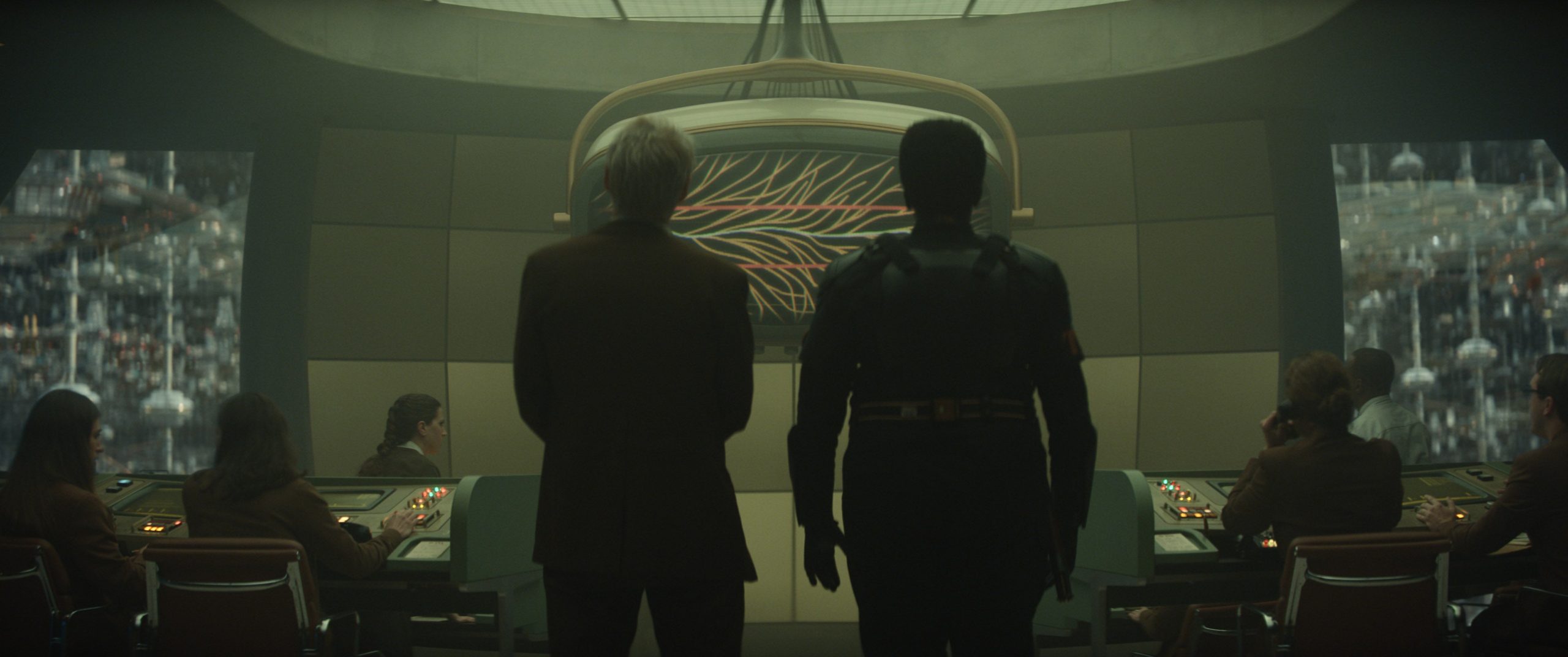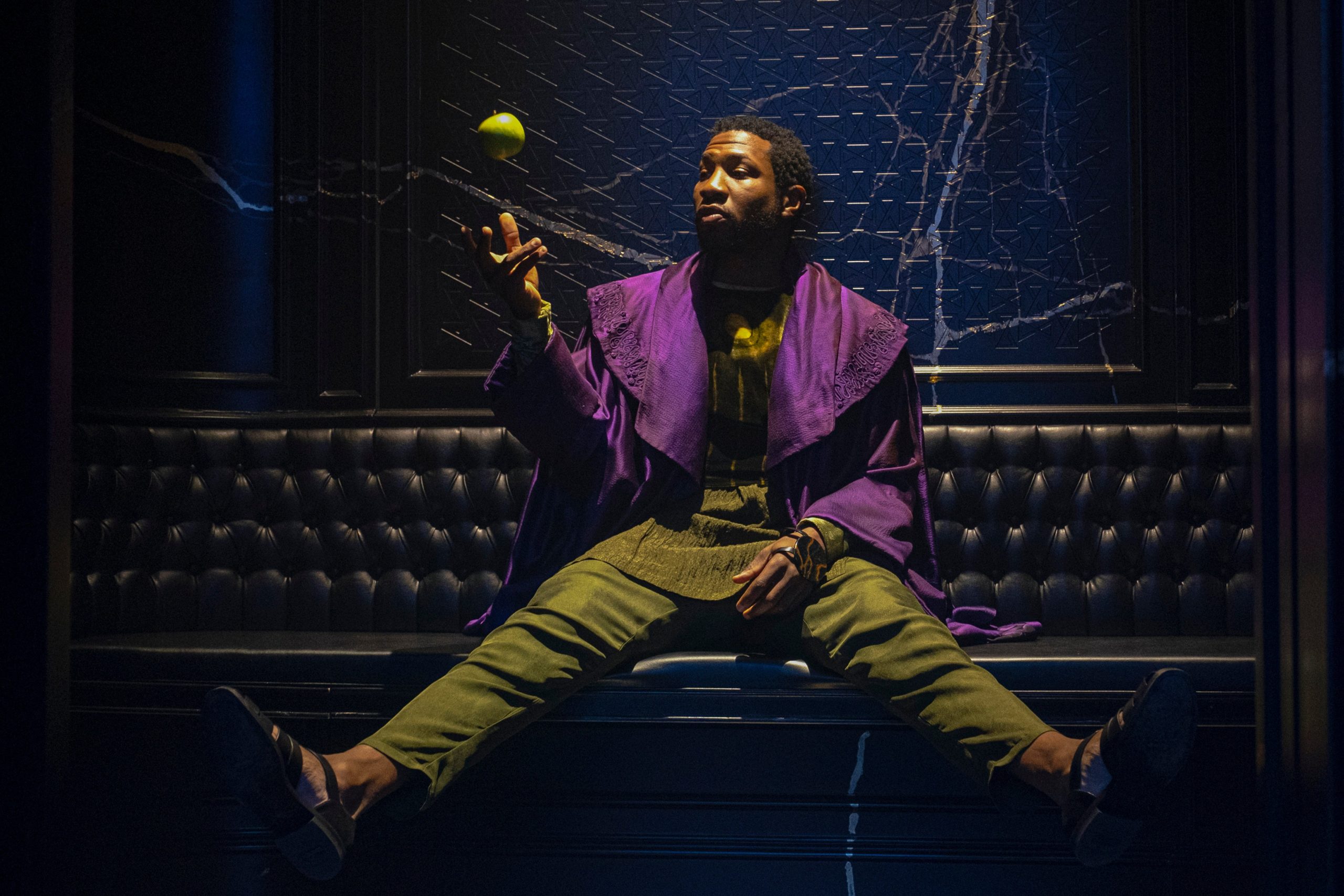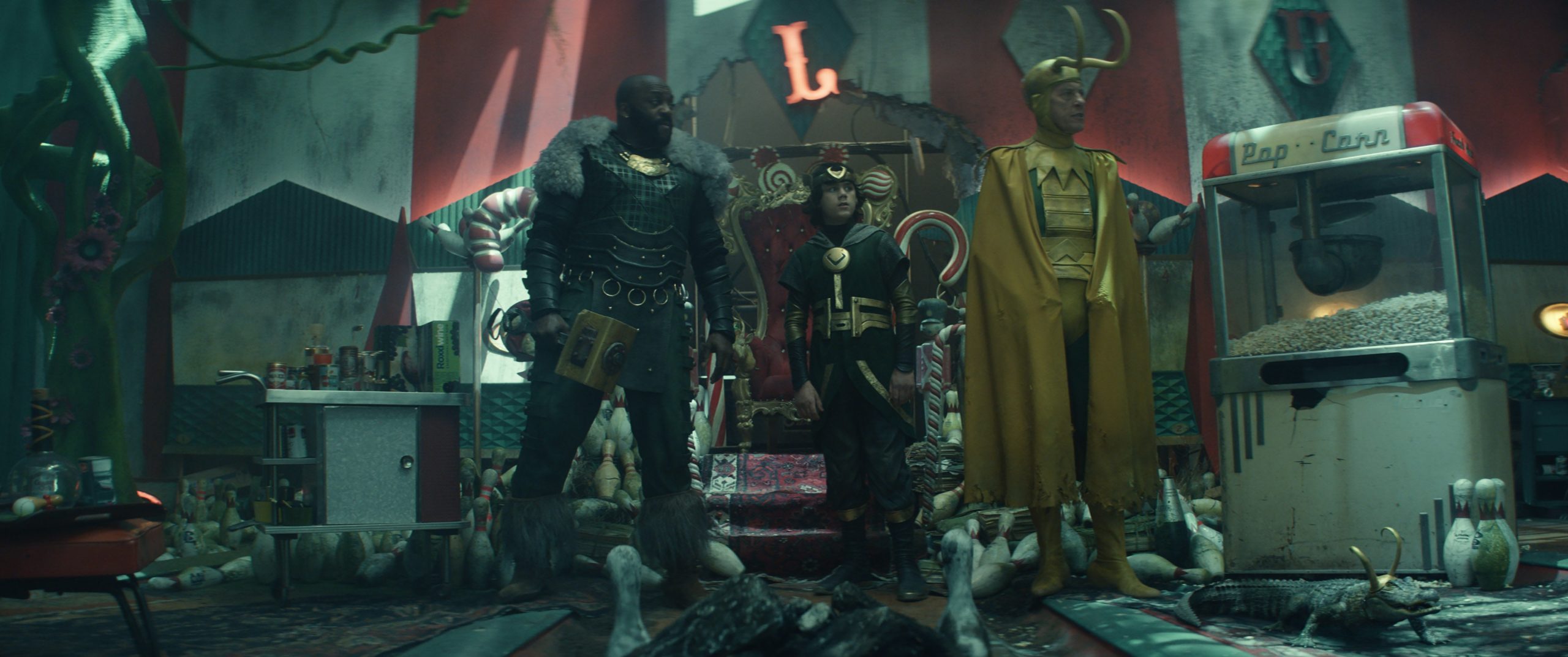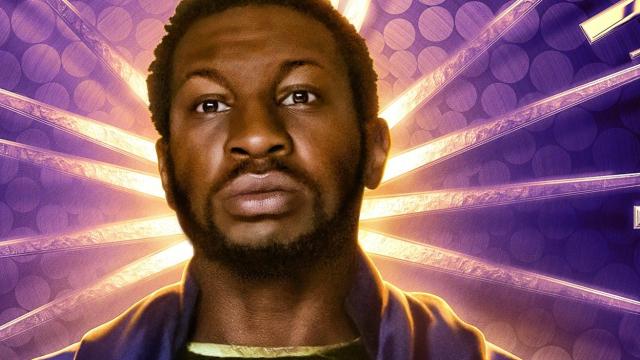Disney+ and Marvel’s Loki was initially a series meant to explore the god of mischief’s inner workings and how we truly come to shape our identities in relation to one another. But the show’s finale threw everyone for a loop by introducing the MCU’s next big bad and directly setting up much of what’s set to play out in the franchise’s future. Gizmodo recently had the chance to speak with director Kate Herron all about He Who Remains.
“For All Time. Always.” didn’t exactly bring Loki (Tom Hiddleston) and Sylvie’s (Sophia Di Martino) respective stories of self-discovery to a close, but it did leave them in a markedly different space (in an existential sense) that’s likely to be the focus of Loki’s second season. The finale ended up focusing on He Who Remains (Jonathan Majors), as he was revealed not only to be the person in control of the TVA, but also the sort of madman who’s well aware of the multiversal chaos he’s been sowing. Though he met his end at Sylvie’s blade after she and Loki shared a tense kiss, the story made clear he was but one of many variants who will become the MCU’s iteration of Kang the Conqueror.
Because multiverse variants tend to be rather distinct from one another, there’s no way of knowing exactly what sort of person the next character Majors appears as will be like. But when Gizmodo recently spoke with Loki director Herron over video, she explained how there is a certain degree of emotional commonality between Loki, Sylvie, and their other variants, and that may hold true of He Who Remains. Even though Loki and Sylvie might not necessarily realise it throughout this first season, Herron explained, they and all of the other Lokis are grappling with a larger feeling that’s shaped them.
Charles Pulliam-Moore, Gizmodo: After “For All Time. Always.,” He Who Remains and Jonathan Majors’ casting really became the big surprise out of the show, and you’ve spoken about how you came onto this project knowing that you were building this specific variant. I’m curious to hear a bit more from you about the conversations you and Jonathan had about He Who Remains’ interiority, as a singular presence within Loki.
Kate Herron: Something that really excited Jonathan and I was just this idea of this balance between an extrovert and an introvert. He’s in isolation, the only character he seems to talk to is this talking clock, Miss Minutes, and other than that he’s surrounded by this really noisy timeline. But it’s very quiet where the Citadel is, and there’s a loneliness and isolation to that. I think it was interesting for us bouncing that idea with this extrovert showman who loves to tell stories.

Gizmodo: Right, and “For All Time. Always.” really is him just laying it all out for the two of them.
Herron: The fun thing that we really like to get into was where is he lying, where is he not lying? And moments where he should go bigger, or where he should go smaller. When he says, “If you think I’m evil, wait until you meet my variants,” and I really believe he remains there. I think you have to believe him because, you know, Loki is like “I believe what he’s saying,” and as we see at the end, he wasn’t lying. They killed him, and the multiverse was born.
Gizmodo: There ended up being this really strong throughline of loneliness that underscored Loki, Sylvie, and He Who Remains’ presences in the show. What were the elements of loneliness that you really wanted to highlight beyond just showing us how they’d been distant from the people who were once close to them?
Herron: Well, there’s that beautiful quote about Loki from the comics, which is that he’s the god of outcasts, and I think he said “They see themselves in me, and I in them.” I think that’s a big part of why I love Loki, but also, you know, he is isolated. He does feel like an outcast, and I think that Sylvie’s the same. She never grew up in a palace, she didn’t even have that life, she has been on the run since she was a child, and living from apocalypse to apocalypse. And He Who Remains is living alone in this Citadel at the end of time because it’s the only way he can keep himself safe. There’s a lot of crossover with the characters in that way.
Gizmodo: He Who Remains’ Citadel is one of the few times we see a Loki character really in their “home” element, and the space suggests so much about what kind of person he is. How did your and Jonathan’s ideas about He Who Remains end up factoring into the look and feel of the Citadel?

Herron: With Jonathan, you can even relate it to his clothes. Me and Christine [Wada], our costume designer, we spoke about that, and she had this amazing idea to build his look from all these different eras, so you can’t quite place him in time, but also at the same time, he’s home all the time, and his clothes should feel like pajamas. Weirdly, it came to be a bit like the pandemic in that sense because we were all in isolation, and I was like, “Yeah, loungewear,” because it makes sense in that way.
Kasra [Farahani], my production designer, had the genius idea that the Citadel would be carved from the meteorite — which is interesting because he’s busy, right, He Who Remains, and he spends all his time in his office. So the office is the most finished part of the Citadel, but the rest is ruined and not quite finished yet, and that kind of gives an interesting idea into his character and the loneliness he’s feeling. Loneliness is definitely a theme running through the show, but I think there’s hope in it also. Loki and Sylvie find each other, and there’s hope in that for them.
Gizmodo: There’s always more thinking that goes into the things we see on screen than the show lets on, and I wanted to hear what sorts of things were discussed about the Loki variants we meet at the very end of episode four. You get such a strong sense of where Classic Loki came from; were there any unexplored ideas about giving the other variants a bit more, like, textual context?
Herron: I think for me, the interesting thing was that Kid Loki, he’s the leader. My thought was that maybe he got that first. I suppose on one hand, you could argue it’s Classic [Loki who should be the leader], but I don’t know. Time is not the future or the past, it could have been any of them, really, but I just think that was something really interesting to me about Kid Loki in that he’s almost the most grown-up out of all of them. Alligator Loki, who knows what the alligator’s story could be? That was always fun — the debate about whether it’s a Loki, or if it’s just an alligator with horns on its head. I think he is a Loki.

Gizmodo: What about Boastful Loki?
Herron: With Boastful Loki, he was just such a character because, you know, I’d worked with Deobia [Oparei] before, and we kind of shaped that character. I think for me, I didn’t know his story exactly, but those questions about whether he’s worthy or not are there, and this fun part of the Lokis that we see in all of them. They want to tell a story and they’re all very charismatic, but as Classic says, there’s that kind of pain within them all.
We don’t necessarily get to delve into that with all the characters completely, but that’s what’s happening when Classic talks about how he missed his brother. That’s what caused his Nexus Event. He was sort of living this cowardly life, which is why I think it was important for us that he goes in and saves Loki and Sylvie at the very end of the episode because he’s trying to do something brave.
Gizmodo: Now that Loki’s properly established a new multiverse within the MCU, what do you as a storyteller think is important for audiences to keep in mind as multiverses become more common in this kind of media?
Herron: I can’t speak for what the future plans to be with them, but I guess anything’s possible, right? Because you see in the void, like all this craziness has been sent there and deleted and all of that stuff will be on its own timeline. So I guess just expect the unexpected, to quote our show.
Loki is now streaming on Disney+, and the second season is set to hit the streaming service at some point in the not-too-distant future.
